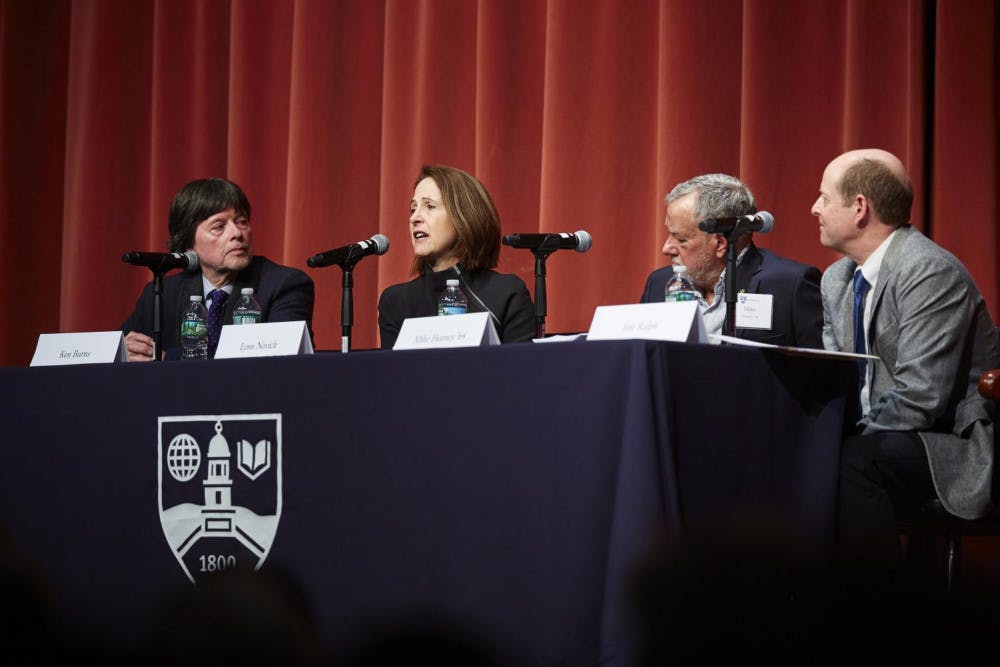Ken Burns and Lynn Novick, Emmy Award-winning filmmakers, discussed their new PBS series “The Vietnam War” on March 21 in Wilson Hall. Mike Heaney ’64, a Vietnam War veteran featured in the film, joined Burns and Novick, and Jim Ralph, dean of faculty research, moderated the event. The jam-packed talk welcomed Middlebury College ID holders and alumni.
Burns and Novick have collaborated on several acclaimed documentaries for Florentine Films, Burns’ production company, including “Baseball”, “Jazz,” “Prohibition,” and “The War.”
Following a short introduction of the guests, the event opened with a montage of excerpts from the series. Chosen from five different episodes, the excerpts explored the gamut of perspectives regarding the war, from the scars of the war veteran to the narratives of Vietnamese civilians. The selections demonstrated the wide-ranging breadth of the series, which leads the audience from wartime tragedies to domestic protests, from fissures in public trust toward the government to fatalities on college campuses.
“Many Americans felt patriotic doing different things,” said Burns.
“It was hugely traumatic for our entire country and raised questions about what it means to be a citizen and a patriot that we are still arguing about,” Novick said, later adding, “What we tried in the film was not to make the other wrong.”
Distributed by PBS, the series has reached an audience of more than 50 million in the US. Reflecting on the impact of their work, Novick said, “Our country went through a trauma that we never dealt with.” Those who participated “have never talked about it, but now they are.”
Heaney’s own motivation for sharing his story was also to spark conversation — to “talk to Americans, especially young Americans, about the horror of war.”
Heaney, who participated in the ROTC program at Middlebury, described being wounded in combat and witnessing the deaths of his fellow soldiers. He said that lifting “the voices of all the men that did not make it back” was another reason for his participation in the series. Heaney’s words resonated with many of the alumni sitting in the room, who attended Middlebury while the events of the Vietnam War unfolded.
After the discussion between the guests concluded, Ralph opened the floor to questions from the audience. Questions came from both students and alumni, ranging from the topic of balancing scholarship with narrative within the film to Heaney’s recent work with veterans suffering from PTSD.
Burns, who worked previously on projects on the Civil War and World War II, concluded on the importance of the topic of war.
“War reflects the worst of us, but it also clearly reflects the best of us, too,” Burns said. “What happens time and time again is that we are drawn to it, obviously because of the sheer intensity of the drama, but we are also obligated to describe the quicksand that war represents.”
According to Burns, the series reminds the audience “how powerful a teacher history is.” Yet at the same time, Burns said, “Americans, it seems, are always destined to learn from those lessons and forget them again.”
Ken Burns and Panel Discuss Vietnam War Documentary

Comments



